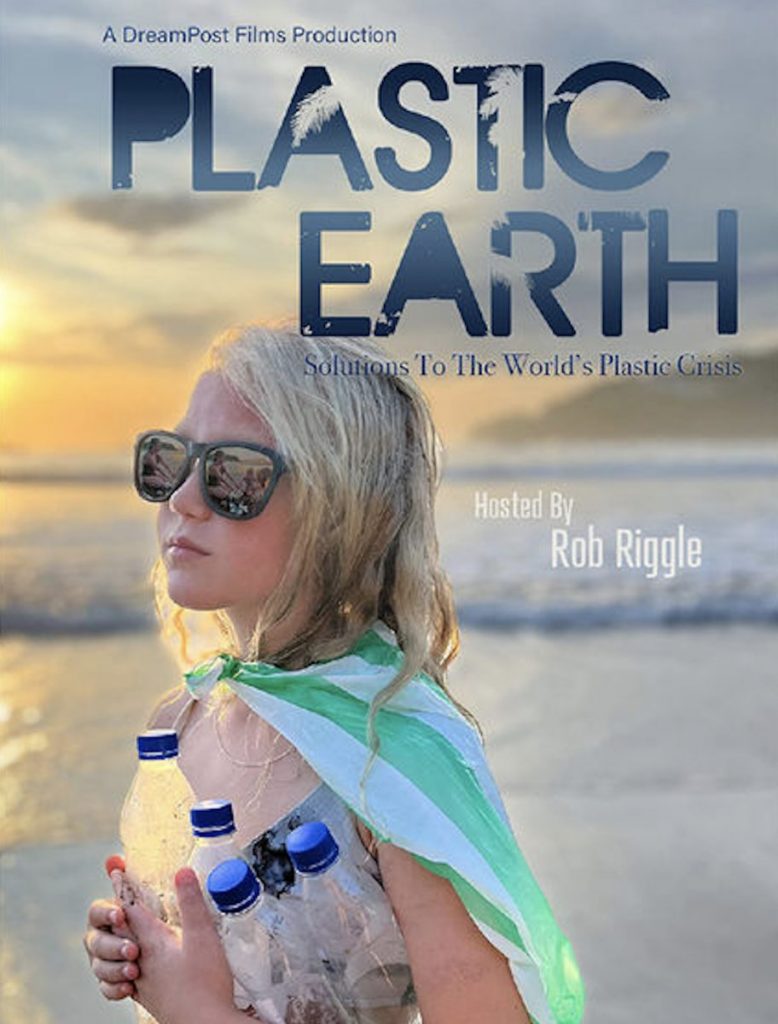
Mariia Novoselia
Staff writer
Janice Overbeck, co-director and producer of the “Plastic Earth,” describes it as a “solution-based documentary.”
The feature-length film, released earlier this year, tells a story of a mother trying to find ways to navigate the problem of plastic pollution – an issue that Overbeck, a mother herself, said affects “our health, the health of our planet, our oceans, wildlife and biodiversity.”
“We still don’t even know all of the effects … plastics are having on us,” Overbeck said. “We know that the microplastics are going into plants and in our bodies and … there’s more startling information being uncovered by scientists all the time.”
Chautauquans have the chance to watch the movie, free with a Tradtional Gate Pass, at 5 p.m. today in the Chautauqua Cinema.
Overbeck said her aim is for people to “feel hopeful that we are moving towards fixing (the plastic pollution) problem” after watching the movie.
The production of “Plastic Earth” started in 2020. The biggest challenge that Overbeck faced throughout the filmmaking process was having to work during the COVID-19 pandemic, she said, noting that she and her team were still “able to work through all the hurdles.”
While the movie does not focus on plastic pollution generated by the pandemic, Overbeck said increased plastic use because of COVID-19 made the movie more “timely.”
Following the screening, Chautauquans will be able to participate in a Q-and-A session with Overbeck and Sherri “Sam” Mason, associate research professor and director of sustainability at Penn State Behrend in Erie, Pennsylvania.
Overbeck got in touch with Mason following a suggestion of Judd Michael, professor of agricultural and biological engineering at Penn State University and an interviewee of Overbeck’s. At that time, Mason was researching microplastics in the Great Lakes and published her first study on plastic water bottles, which made her “a perfect fit” and “a great addition to the film.”
Other studies conducted by Mason have led to national legislation banning the use of microbeads.
Mason said it was “in direct connection” to their first study in the Great Lakes that she and her colleague from Niagara University found high numbers of “little perfectly spherical balls of plastic.” Through the process of elimination, she said, they established that the objects must be microbeads coming from personal care products.
“Unusually for a scientist,” Mason said, she was sharing information about their findings as they were being discovered, as opposed to waiting until publication.
Even though the New York State legislature never signed the microbeads ban, she said it was employed by eight different states across the country.
Later, Congress passed the Microbead-Free Waters Act of 2015. The piece of legislation “prohibits the manufacturing, packaging, and distribution of rinse-off cosmetics containing plastic microbeads,” according to the U.S. Food & Drug Administration’s website.
Reflecting on different ways to solve the pollution crisis, Mason said while taking different steps to reduce the use of plastic is crucial, it is also important to advocate for change.
“You can make changes, obviously, on an individual level, but this really has to be something that happens above and beyond us as individuals,” she said.
Currently, Mason said she is trying to find connections between what scientists find in the Great Lakes and identifiable objects on land, in addition to working as a professor.
“I said this to my students the other day – they were like: ‘How do you deal with having this knowledge?’ And I said: ‘Well, I’m going to die, so it’s more of a concern for you guys,” she said. “We need to be thinking more about our kids than ourselves, … more about how we (can) change the systems, so that this is less of a problem in the future.”
Overbeck said it was her four daughters who inspired her to create “Plastic Earth.”
Mason said Q-and-As are always her favorite part of any presentation. She said she looks forward to watching the documentary with a “normal” audience, seeing “how they engage and process it,” and discussing it afterwards.
“When I say ‘normal,’ I only mean somebody who’s not obsessed with trash and plastic the way that I am,” she said.
“Plastic Earth” was Overbeck’s directing debut. She said she is “very excited for more people to see it, to learn more about (plastic pollution) and spread more awareness on it.”




